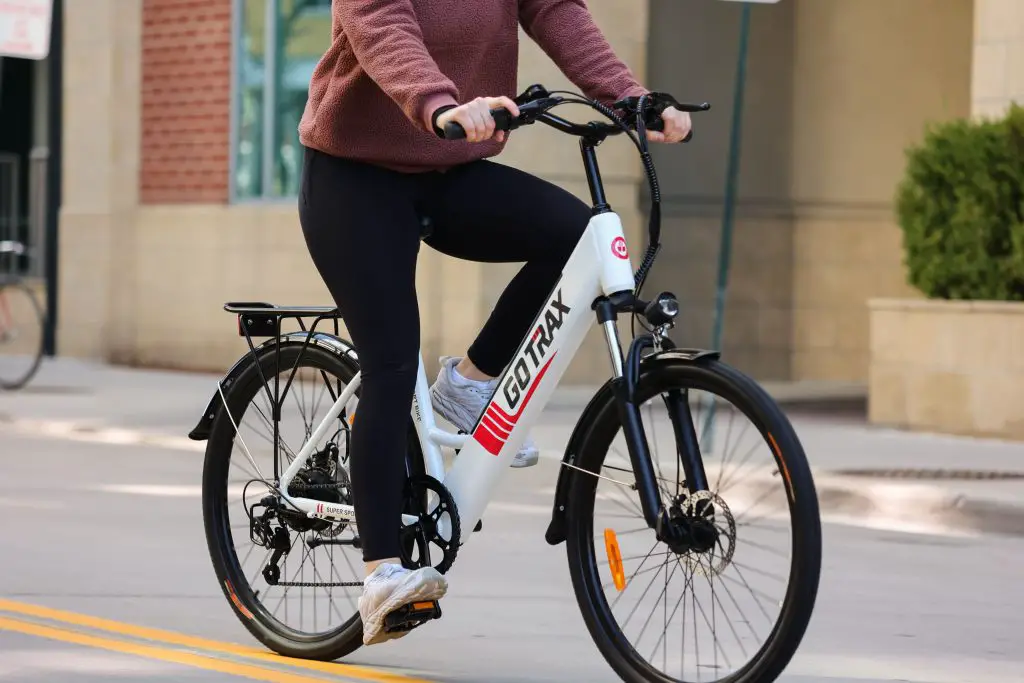In recent years, e-bikes have emerged as a popular mode of transportation for both commuting and leisure purposes. E-bikes offer a unique combination of convenience, affordability, and eco-friendliness. With their electric motors, they offer a more accessible option for people who want to travel long distances or have physical limitations. However, like any form of transportation, e-bikes also have their pros and cons. In this article, we will explore the various advantages and disadvantages of e-bikes, providing you with the information you need to make an informed decision about whether an e-bike is right for you.

Contents
What is an E-Bike
An e-bike, or electric bicycle, is a bicycle that has an electric motor and battery attached to it. The electric motor assists the rider in pedaling, making it easier to ride and providing additional speed and power. E-bikes can come in a variety of styles, including traditional bicycles, mountain bikes, and even cargo bikes. They are generally powered by rechargeable lithium-ion batteries and have a range of up to 50 miles or more, depending on the model and usage.
Some e-bikes also come with advanced features, such as pedal assist modes, throttle control, and regenerative braking, which can help increase their efficiency and convenience. Overall, e-bikes offer a more eco-friendly and efficient alternative to traditional modes of transportation while providing the rider with a fun and convenient way to travel.
Is an E-Bike right for you?
Whether an e-bike is right for you depends on your personal needs and preferences. Here are some questions to consider when deciding if an e-bike is a right choice:
- How far do you need to travel? If you need to travel long distances, an e-bike may not be the most practical choice due to its limited range.
- What is your budget? E-bikes can be expensive, so it’s important to consider whether the cost is feasible for your budget.
- What is your fitness level? If you have physical limitations or are not in good physical shape, an e-bike may be a better option than a traditional bicycle.
- What is the terrain like in your area? If you live in a hilly or mountainous area, an e-bike can make it easier to navigate steep hills.
- How often will you use the bike? If you plan to use your bike frequently, an e-bike may be a more cost-effective option in the long run due to less wear and tear on your body.
- What is your comfort level with riding? If you are uncomfortable riding at high speeds or in traffic, an e-bike may not be the best choice for you.

Pros of E-Bikes
- Eco-friendly: E-bikes produce zero emissions, making them an environmentally friendly mode of transportation.
- Cost-effective: E-bikes are cheaper than cars and require less maintenance compared to traditional bicycles.
- Increased mobility: E-bikes can help individuals travel longer distances with less physical exertion, making them accessible to people of all ages and fitness levels.
- Health benefits: While e-bikes require less physical exertion than traditional bicycles, they still provide some exercise, making them a healthier alternative to cars or other motorized transportation.
- Faster commute times: E-bikes can help individuals avoid traffic congestion and reach their destination faster than traditional bicycles.
- Convenience: E-bikes allow riders to travel faster and farther without getting as tired, reducing the need for breaks during long trips.
- Versatility: E-bikes can be used for various activities, including commuting, leisurely rides, and even off-road adventures.
- Accessibility: E-bikes can be used by individuals who may not be able to ride traditional bicycles due to age, physical limitations, or health issues.
Cons of E-Bikes
- Initial cost: E-bikes can be expensive, especially if you are looking for high-quality models with long battery life and advanced features.
- Limited range: E-bikes have a limited range depending on the battery life, which can be an issue for individuals who need to travel long distances.
- Charging time: E-bikes need to be charged, which can take several hours, making it difficult to use them for extended periods of time.
- Weight: E-bikes are heavier than traditional bicycles due to the battery and motor, which can make them more difficult to transport and maneuver.
- Safety concerns: E-bikes can travel at higher speeds than traditional bicycles, which can increase the risk of accidents. Riders should take precautions to ensure their safety, such as wearing a helmet and following traffic laws.
- Maintenance: E-bikes require more maintenance than traditional bicycles, including maintaining the battery and motor.
- Limited availability: E-bikes may not be as widely available as traditional bicycles, making it difficult to find one in certain areas.

So, here are the Pros and Cons of E-bikes you should know
In conclusion, e-bikes offer several advantages over traditional bicycles and other modes of transportation, including cost-effectiveness, increased mobility, health benefits, faster commute times, convenience, versatility, and accessibility. However, they also have some drawbacks to consider, such as their initial cost, limited range, charging time, weight, safety concerns, maintenance, and limited availability.
When deciding whether an e-bike is right for you, it’s important to consider your personal needs and preferences, such as how far you need to travel, your budget, fitness level, terrain, frequency of use, and comfort level with riding. Ultimately, e-bikes offer a convenient, eco-friendly, and efficient mode of transportation that can be a great alternative to traditional modes of transportation, but it’s important to weigh the pros and cons before making a decision.
Want to know whether E-Bikes can climb steep hills? Read it here.





